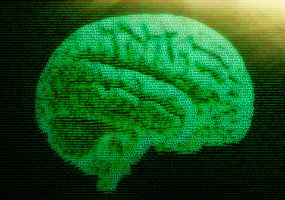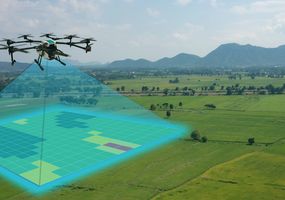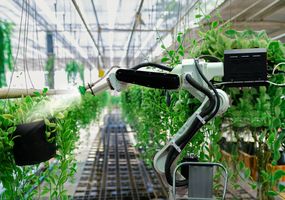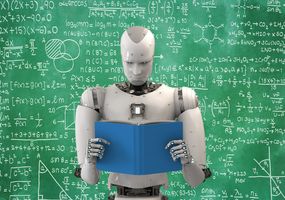Research and Transfer
The interdepartmental Interdisciplinary Institute for "Applied Artificial Intelligence and Data Science Ruhr" (AKIS) has as a special feature its broad and interdisciplinary character. With Electrical Engineering & Computer Science, Geodesy, Civil and Environmental Engineering, Economics as well as Mechatronics and Mechanical Engineering, almost all departments are involved. AKIS has the task of advancing the topics of Artificial Intelligence, Machine Learning and Data science at the HS-Bochum and to serve as a nucleus for innovation and transfer of research results into practice. Thus, in addition to research in the above-mentioned core topics, the goal is application to other disciplines. In this regard, we are happy to cooperate with the regional economy, civil society and public institutions, among others, within the framework of funded research and development projects of the federal and state ministries, the EU as well as within the framework of economic projects.
Research Topics and Application Ranges
In the context of the profile of the Bochum University of Applied Sciences, we attach particular importance to aspects of sustainability and focus on topics such as Green AI, Trustworthy AI, Intelligent Mobility, Resource Efficiency in Production and the applications in the field of Environmental Technology and Protection. Below you will find information on the individual areas as well as conducted and ongoing research projects. Information regarding PhD opportunities can be found under Teaching.
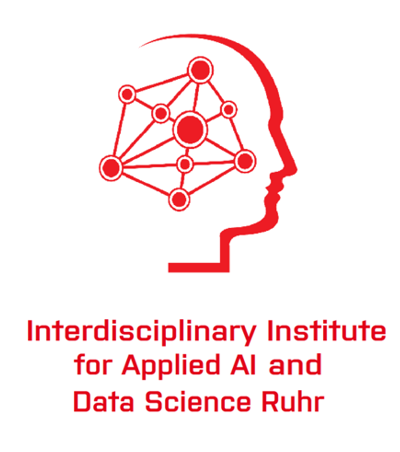
Contact:
Prof. Dr. Christian Bockermann (Institute Director)
Bochum University of Applied Sciences
Campus Bochum - Room AW 01-32
Business Informatics and Data Science
Am Hochschulcampus 1
44801 Bochum
E-Mail: christian.bockermann@hs-bochum.de
Phone: +49 234 3210655
Implemented and Ongoing Projects
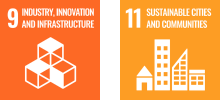
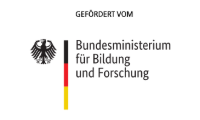
Intelligent circular economy through advanced AI technologies
The ‘CoFill’ project is focussing on the development of AI-supported solutions to improve efficiency and sustainability in the circular economy. By using intelligent data analyses and predictive models, the aim is to optimise processes in waste management and enable more sustainable use of resources.
- Project leader: Prof Dr Jörg Frochte
- Funded by: Federal Ministry of Education and Research
- Volume (in €): 375.012
- Co-operating partner: Zolitron
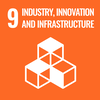
Water Jet Milling with Smart AI Modelling
The "JetsKI" project aims to utilise innovative machining processes through the use of artificial intelligence (AI). Water jet milling has enormous potential for the efficient machining of previously difficult-to-machine materials such as high-strength ceramics, but has so far been too demanding and complex for the broad industrial user group. The application of AI methods is intended to improve process design and support the user in the computer-aided manufacturing environment in order to overcome previous limitations and achieve modern industrial standards.
- Project leader: Prof Dr Jörg Frochte
- Sponsor: NRW Innovation Promotion Agency
- Volume (in €): 1.1 million
- Co-op partners: HydroMill, AixPath
NFDI4Earth is one of the consortia within the National Research Data Infrastructure (NFDI).
It brings together the leading national institutions in Earth system science and includes more than 50 organizations. These collaborate in international and interdisciplinary networks with the overarching goal of understanding Earth system functioning and interactions and addressing the multiple challenges of global change. NFDI4Earth addresses the digital needs of researchers in Earth system science. A variety of sensor and simulation data at very high spatial, temporal, and thematic resolutions are leading to rapidly increasing data volumes here. The description and assessment of Earth system processes, their dependencies and changes therefore urgently requires efficient research data management as well as more powerful collaboration environments for joint, cross-disciplinary data analysis.
- Project leader: Prof. Carsten Keßler
- Funding Organisation: German Research Foundation (DFG) (Project number 460036893)
- Volume (in €): 35.6445,69 from Bochum University of Applied Sciences.
- Cooperation partners: see project details page
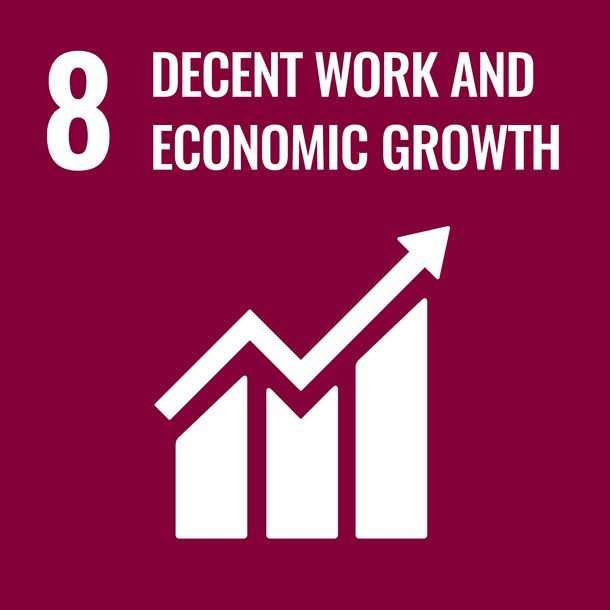
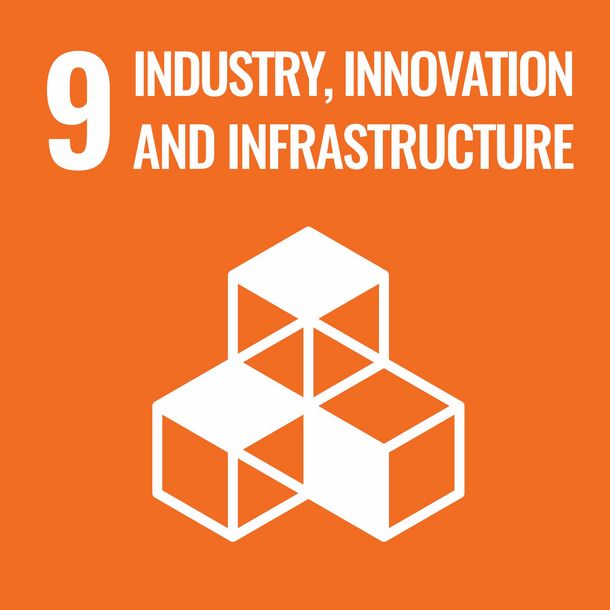
Transformation of the Automotive Industry in the Bergisch Region
The TrAIber.NRW project, funded by the Federal Ministry for Economic Affairs and Climate Protection under the title "Action-oriented knowledge transfer in the Bergisches Land multi-pattern transformation region" (HaWiss Multitrans), supports automotive suppliers in the Bergisches Land region in coping with drive changes and climate targets.
The use of digitalisation, including AI and data-driven innovations, is driving adaptations in business models and production processes. The project is developing a regional transformation strategy based on comprehensive analyses, which will form the basis for all project orientations.
A particular focus is on the development of educational offers, ranging from the adaptation of training occupations to dual study programmes, in order to promote lifelong learning and strengthen professional skills in line with SDG 4. A modular transformation toolkit also offers courses, methods and guidelines tailored to the specific needs of regional stakeholders.
The "Bergische Akademie für Transformation" will continue to provide these educational and advisory services after the end of the project funding, thereby sustainably supporting SDG 9 (Industry, Innovation and Infrastructure) and SDG 13 (Climate Action) as well as SDG 4 (Quality Education) in order to promote comprehensive and sustainable development in the region.
- Project leaders: Prof. Dr Jörg Frochte, Prof. Dr Clemens Faller & Prof. Dr Markus Lemmen
- Funded by: Federal Ministry for Economic Affairs and Climate Protection
- Co-operation partners: Here you can find a list of the co-operation partners.
Thermal energy conversion using shape memory materials to exploit waste heat potential (THEAsmart & THEAsmart2):
Waste heat from industry, commerce, households as well as solar energy generation represent a large energy potential in Germany and worldwide. Large quantities of fossil fuels could be saved if this could be used more efficiently. Against this background, the "THEAsmart" research project has already identified fundamental framework conditions and interrelationships of technical usability. Potentials were identified that make the use of heat sources with the aid of FGL systems in various applications appear technically possible, economically viable and ecologically sensible. Two core approaches are therefore to be further researched in the follow-up project THEAsmart II and prototypically presented in demonstration projects. The developments are to be able to tap heat sources in different application areas and fields of use and convert thermal energy into kinetic energy (FGL fluid pump) or electrical energy (energy harvester). So-called wet actuators, FGL actuators activated by fluids, will be further optimized for energy conversion in the already patented applications from the THEAsmart project.
- Project leader: Prof. Clemens Faller
- Sponsor: Ministry of Economic Affairs, Innovation, Digitalization and Energy of the State of NRW
- Volume (in €): 1.679.000 Euro
- Cooperation partners: FGW Remscheid, FH Münster, Dörschler GmbH, BLECO GmbH
Open Educational Resources for Spatial Information Infrastructures:
The goal of the OER4SDI project is to develop and publish a structured and coherent collection of CC-licensed OER materials that support students in geospatial information processing courses (e.g., geoinformatics, geodesy, geomatics) in gaining a comprehensive understanding of the architecture, implementation, and use of spatial data infrastructures. This includes the conceptual, technical, and legal foundations of distributed spatial data infrastructures as well as models for their development and governance at regional, national, and international levels. Students will develop essential skills that will enable them to contribute to the development and valorization of these infrastructures in their future careers. The OER will be published via the state portal ORCA.NRW and used in teaching over a period of at least 5 years.
- Projekt leader: Prof. Carsten Keßler
- Sponsor: DH.NRW
- Volume (in €): 499.087 Euro
- Cooperation partner: Ruhr-Universität Bochum
With digital mentoring, the three partner universities address several challenges that are currently influencing and shaping teaching and learning: on the one hand, there is the fact that their first-year students usually start their studies with very different prerequisites, for example with different approaches to higher education entrance qualifications and an increasing social and cultural diversity of students. In addition, the three partners also want to take into account the growing length of studies and the significant increase in the use of digital teaching elements.
In this context, it is precisely the digitization of teaching that opens up the new opportunities that Digital Mentoring exploits. The "learning analytics" method used here makes use of the data generated by students' learning activities to better identify the needs of individual learners and provide better support for the individual learning process. To this end, the three universities use information from various sources, such as administrative and learning management systems, compile it and evaluate it in compliance with all data protection regulations. The use of educational data mining is intended to contribute to the compilation of recommendations for the further course of studies, which complement the support and guidance provided by professors, but also service institutions such as the student advisory service.
More information on the project here.
- Project leader: Prof. Jörg Frochte
- Sponsor: Stiftung Innovation in der Hochschullehre under FBM2020-VA-219-2-05750
- Volume (in €): share of Bochum University of Applied Sciences: 948.973
- Cooperation partners: FH Dortmund (Consortium management), Westfälische Hochschule
Shared Tasks as an innovative approach to implementing AI and Big Data-based applications in the higher education landscape:
With SharKI, we are developing a shared task platform to enable instructors to implement, execute, and assess shared tasks in courses using AI. Intergated is the aspect of educationan data mining. Primary targets at HS BO are robotics and control engineering.
- Project leader: Prof. Jörg Frochte
- Sponsor: BMBF Call 2873
- Volume (in €): 166.545
- Cooperation partners: Uni Leipzig, Uni Weimar
Substitution of deterministic models for the description of space-time-variant processes using machine learning methods:
Development of AI methods for data-based modeling of hydrological processes.
- Project leader: Prof. Andreas Wytzisk-Arens
- Sponsor: Internal funding
- Volume (in €): 80.000
- Cooperation partners: TU Dresden, Bochum University of Applied Sciences (FB B)
TIered MAchine Learning ArchItEctures:
Development of New Methods and Processes in Machine Learning with Special Consideration of Data Privacy and Data Security
- Project leader: Prof. Jörg Frochte
- Sponsor: EFRE (EU & NRW)
- Volume (in €): 538.310
- Cooperation partners: University of Wuppertal, various industrial partners
Bee Statistics develops data-driven policy advice based on statistical and machine-learned data analysis. For more information, visit https://www.opa-tad.de.
- Project leader/mentor: Prof. Henrik Blunck
- Sponsor: EFRE (NRW Startup funding line)
- Volume (in €): share of Bochum University of Applied Sciences: 235.000
- Cooperation partner: Political Science RUB, Prof. Dr. Bovermann
Municipal monitoring of spatial development:
In the future, the two municipalities of Essen and Mühlheim an der Ruhr want to align their urban development in a holistic and flexible manner and react promptly to emerging changes in their planning processes. Changes in the urban area (e.g. with regard to demographics or social structure) are to be recognized at an early stage both for the city as a whole and for individual neighborhoods. For this purpose, an integrated monitoring system was developed that combines data from different areas and allows spatiotemporal analyses. A web-based software was developed, which allows an integrated GIS-based, spatio-temporal monitoring of geodata and statistics. The software is freely available and was developed as a working tool for the local government to be able to answer current questions of urban development in a timely and demand-oriented manner. Due to a modular software architecture as well as generic and configurable functionalities, KomMonitor is transferable to other municipalities as well as to other application fields and scale levels. Geodata and statistics are made accessible in a user-friendly and appealing way by means of an interactive map application, diagrams and other analysis tools. A meaningful indicator system ensures a transparent and structured preparation of spatial information.
More about the project here.
- Project leader: Prof. Andreas Wytzisk-Arens, Dr.-Ing. Alexandra Lindner
- Sponsor: German Federal Ministry of Education and Research/ Funding measure: Kommunen innovativ
- Volume (in €): 815.710,74
- Cooperation partners: Ruhr University Bochum, City of Müllheim an der Ruhr, German Institute of Urban Affairs, Institute Space & Energy
In the Smartdemography project, small-scale demographic monitoring was created for the district of Recklinghausen, which provides small-scale information as well as indicators on the population and existing infrastructures in digital form. Automatically acquired data was processed in accordance with data protection regulations and made available in a portal for the city administration, business, research and the public. The tool makes it possible to control the structural change of the region in a sustainable manner and to view decisions and planning holistically and in relation to target groups.
- Project leader: Prof. Andreas Wytzisk-Arens
- Sponsor: "Umbau 21 - Smart Region" Initiative for digitalization in the Emscher-Lippe region
- Volume (in €): 776,095.24, Bochum University's share: 235,628.66
- Cooperation partners: /
Innovative operating concepts in Computer Aided Design (CAD) based on gaming technologies:
The project deals with the development of a novel software for intuitive design of CAD solutions in the field of architecture.
- Project leader: Prof. Stefan Müller-Schneiders (subproject AI)
- Sponsor: EFRE (EU & NRW)
- Volume (in €): 487.176,50
- Cooperation partners: Maximago GmbH, W Kubik GmbH
A research project to develop a platform and tools to standardize and simplify the provision of (mobility) data and its analysis. Further information at https://www.opa-tad.de.
- Project leader: Prof. Henrik Blunck
- Sponsor: BMBV (mFund funding line)
- Volume (in €): 670.000, share of Bochum University of Applied Sciences: 229.000
- Cooperation partners: BO-I-T (Bochum Institute of Technology), Old World Computing GmbH, SECUNET Security Networks AGV
Water Copernicus Services:
Effects of climate change as well as intensification of agricultural use are already leading to increased nutrient inputs into flowing waters and reservoirs. Water authorities, water management and wastewater associations as well as municipalities are thus facing new challenges. In order to ensure efficient and environmentally sound water management in the future, adaptations to the changing framework conditions are necessary. Against this background, the WaCoDiS research project was dedicated to the quantification and precise localization of substance discharges as well as qualitatively optimized modeling of sediment and pollutant discharges into flowing waters and dams. For this purpose, solution strategies for combining different data sources (with a focus on Copernicus satellite data), existing web-based information systems and new model components were developed.
More about the project here.
- Project leader: Prof. Andreas Wytzisk-Arens
- Sponsor: Federal Ministry of Transport and Digital Infrastructure/ Modernity Fund/mFUND
- Volume (in €): 357.204
- Cooperation partners: Wupperverband, EFTAS GmbH, 52° North
Increasing the robustness of extreme value statistics methods for the analysis of hydrological data:
The aim of the project is to (a) quantify the influence of hydrological parameters on the results of extreme value statistics and (b) develop algorithms that allow robust estimation of flood probabilities even in the presence of the above-mentioned influencing factors.
- Project leader: Prof. Christoph Mudersbach
- Sponsor: German Research Foundation (DFG)
- Volume (in €): 19.320
- Cooperation partners: /
The aim of the prospective.HARVEST project was to develop and test a prototypical information infrastructure for optimizing the agricultural process chain "silo corn harvest". With the help of geo-referenced forecast data, the use of operating resources was to be minimized through anticipatory behavior, and the resource and energy efficiency of the logistics chain was to be increased.
Project leader: Prof. Andreas Wytzisk-Arens
Sponsor: German Federal Ministry of Food and Agriculture/ Funding measure: BMEL Innovation Promotion Program
Volume (in €): 142.862
Cooperation partners: CLAAS E-Systems KGaA mbH & Co KG, CLAAS Selbstfahrende Erntemaschinen GmbH, 365 Farmnet GmbH & Co KG, green spin GmbH, 52° North Initiative for Geospatial Open Source Software GmbH, DFKI Bremen
Investigations into the application of transient design approaches in water management practice:
The research project deals with the question of how changes in hydrological time series caused by humans or climate change can be sustainably taken into account in the design of water management facilities. Specifically, changes in precipitation time series in NRW are being investigated and new design strategies derived.
- Project leader: Prof. Christoph Mudersbach
- Sponsor: State Office for Nature, Environment and Consumer Protection NRW (LANUV). Funding line: "Resource-efficient wastewater disposal NRW - ResA"
- Volume (in €): 316,599.04, share of Bochum University of Applied Sciences: 83,563.65
- Cooperation partners: Hydrotec Ingenieurgesellschaft mbH, wbu consulting Ingenieurgesellschaft mbH
Knowledge-based decision support for sustainable production in medium-sized companies:
The goal of the BMBF-funded project "WisE-Pro" is to develop and implement a holistic concept for knowledge-based decision making for sustainable production. For the production company, it means using energy and production data to gain an understanding of the efficiency of production and thus find potential for increasing efficiency and, as a result, greater sustainability. They are supported by a consulting concept for energy efficiency, which will be offered by an energy supplier in the future. For the energy supplier, it means generating knowledge about the energy consumption of its customers in order to be able to make well-founded decisions in energy demand planning with regard to the use of renewable energies. In the interaction between energy producer and user, the exchange of data enables an optimized use of the available energy in order to minimize the reserve to be kept from conventional energy sources.
- Project leader: Prof. Clemens Faller
- Sponsor: Federal Ministry of Education and Research - Program Research at Universities of Applied Sciences
- Volume (in €): 324,000
- Cooperation partners: /
Establishment of international collaborations:
Initialization of a cooperation in the field of machine learning / AI with Prof. Marsland (New Zealand).
- Project leader: Prof. Jörg Frochte
- Sponsor: DFG
- Volume (in €): 5.900
- Cooperation partner: Massey University (New Zealand)
Data mining for student advising:
Educational Data Mining on University Databases for Academic Advising and Quality Optimization.
- Project leader: Prof. Jörg Frochte
- Sponsor: Ministry of Education and Science of the State of NRW
- Volume (in €): 38.850
- Co-op partner: /


